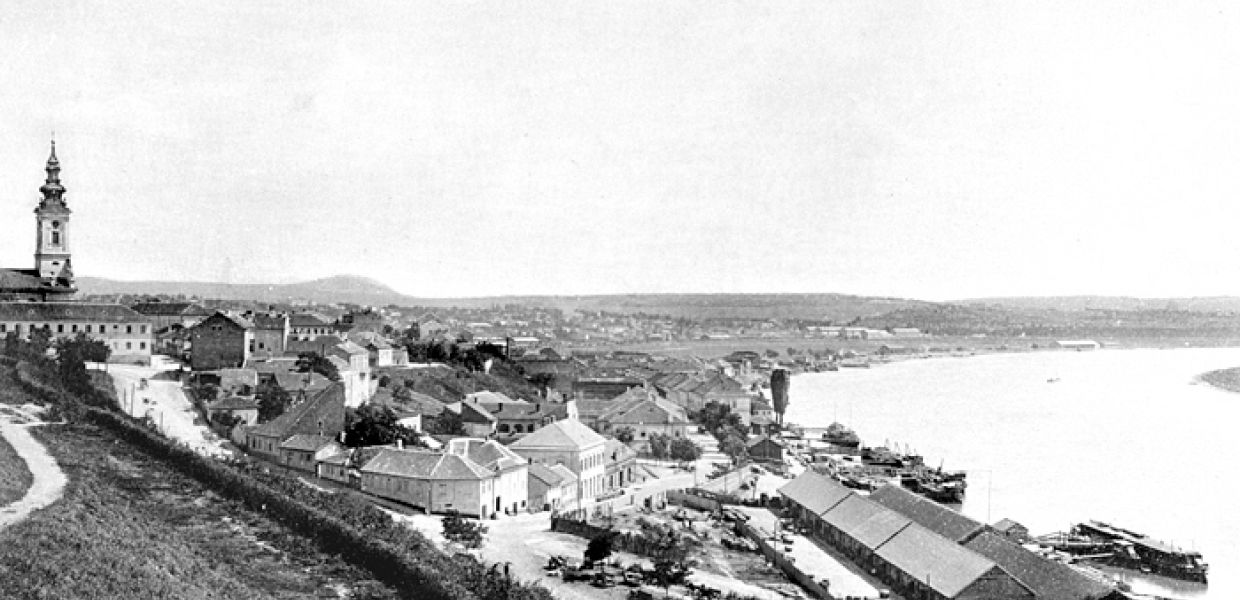Serbia launches new heritage aggregator for Europeana

Today's blog has been written with Tamara Butigan Vucaj, deputy director at the National Library of Serbia.
An aggregator for Serbian cultural heritage has been launched in Belgrade.
Until now, cultural heritage from Serbia has come into Europeana through aggregators like The European Library, and projects like Europeana Collections 1914-1918 and Europeana Awareness. The new aggregator will enable more of the country’s fascinating heritage to be published through Europeana.
Tamara Butigan Vucaj, deputy director at the National Library of Serbia, said, “The setting up of an aggregator in Serbia is important as it will provide a central, national point for contribution to Europeana.” The first results are expected at the end of 2015.

Belgrade. Image: Hallwylska museet, Public Domain.
The launch of the aggregator was part of a ‘Books and Culture as Gateway to EU’ event, which also served to promote the Serbian Library Network. The event was the result of cooperation between a Delegation of the European Union to the Republic of Serbia, the Serbian Ministry of Culture and Information, the National Library of Serbia and the Serbian European Integration Office.
Serbia in Europeana
Part of the event was dedicated to ‘Serbia in Europeana’. Organisers wanted to demonstrate the value of working with Europeana and to introduce the librarians to the Serbian heritage already available in Europeana.
Belgrade City Library has been involved in two Europeana projects: LoCloud and Europeana Awareness. Predrag Djukic, assistant director, encouraged Serbian librarians to think about using LoCloud’s unique ‘Cloud for Culture’ to set up their digital libraries.
He also talked about the family history roadshows held in three Serbian cities - Belgrade, Cacak and Novi Sad - to gather material about people’s experiences of the First World War to add to Europeana 1914-1918. This generated a great deal of interest from both Serbian librarians and the general public.
The National Library of Serbia was a partner in the Europeana Collections 1914-1918 project. Nemanja Kalezic, who coordinated their activity, talked about lessons learnt from this project and also about Veliki rat, a national digital library on the Great War. Serbian content holders are invited to contribute to this digital library by emailing [email protected].
Adam Sofronijevic, head of library systems, digitisation and cultural programmes at the “Svetozar Markovic” University Library talked about their participation in Europeana Libraries and Europeana Newspapers. Thanks to these projects (and library domain aggregator, The European Library) about 700,000 digital pages from the University Library are now available on Europeana, including 400,000 searchable newspaper pages.

Adam dedicated a few slides of his presentation to answer the question: Why Europeana? His convincing argument: to be a part of community, to be seen, to find out what’s going on and to socialise.
The Museum of Applied Art successfully contributed to the Europeana Fashion project. Curator Dejan Sandic talked about being the first Serbian museum to work with Europeana by digitising and putting online 500,000 museum objects. Dejan also reflected on two challenges they faced: achieving the standards set by Creative Commons licences and the Europeana Data Model.

Yugoslav Cinémathèque, National Film Archive of the Republic of Serbia, participated in the EFG - European Film Gateway project, as well as in its extension, EFG1914. Through EFG1914, Yugoslav Cinémathèque provided 63 films about the Great War, all of which are now available to watch online through EFG and Europeana. Aleksandar Erdeljanovic, director of the Film Archive, showed the film “Life in the Serbian Army Camp in Banjica” explaining aspects of the restoration and digitisation process.
These presentations go to show that there is great momentum in Serbia to collect, digitise and share the nation’s cultural heritage. The development of a national aggregator will make sure that more of that heritage is shared with Europeana and the people of Europe.
